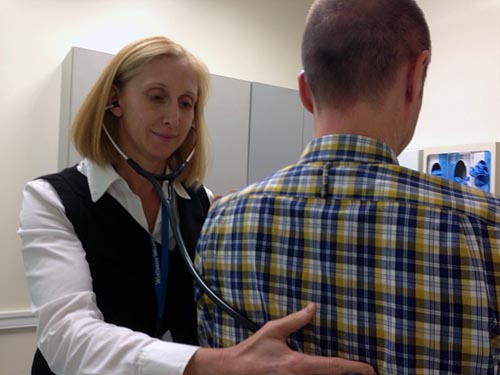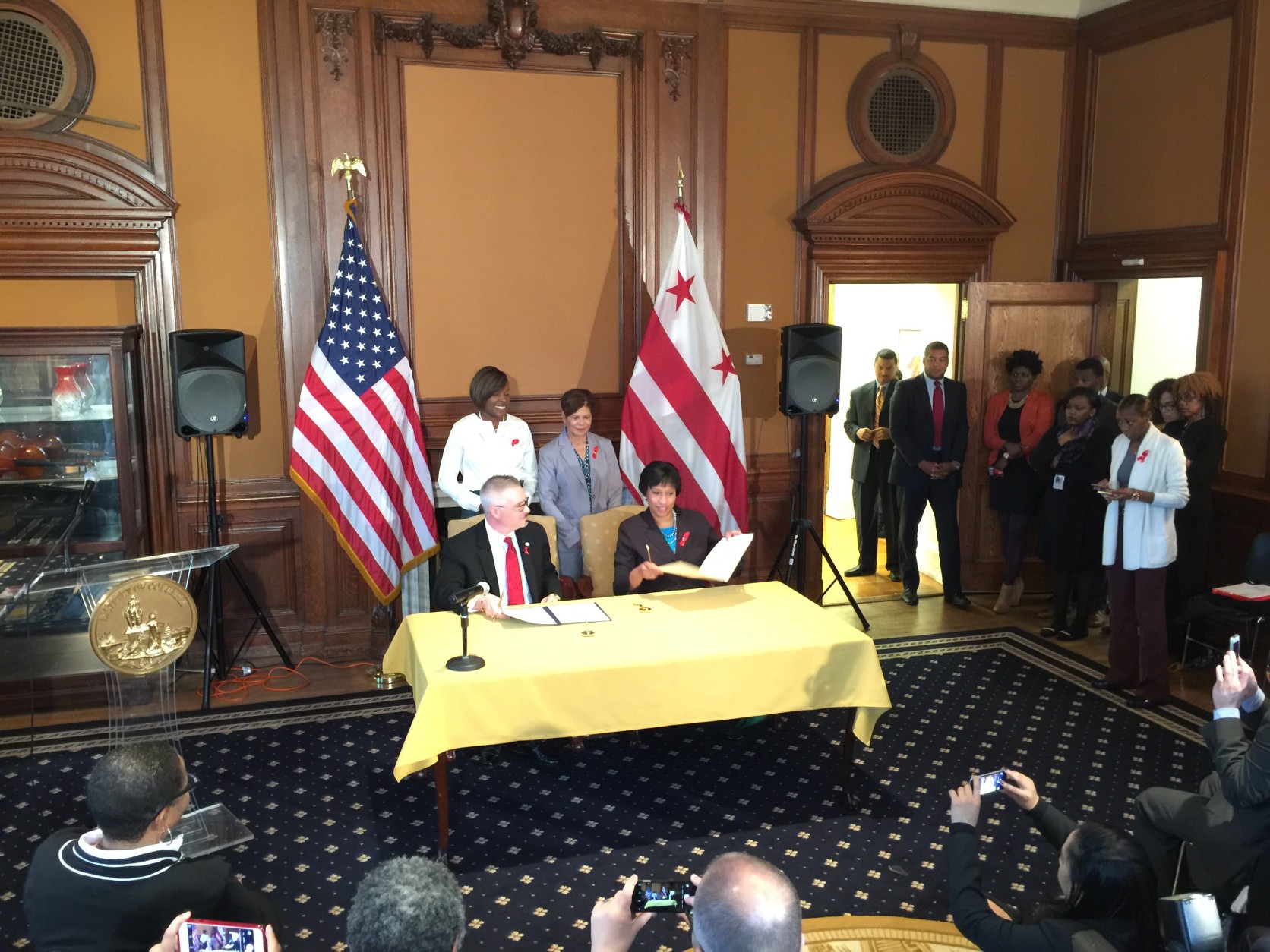
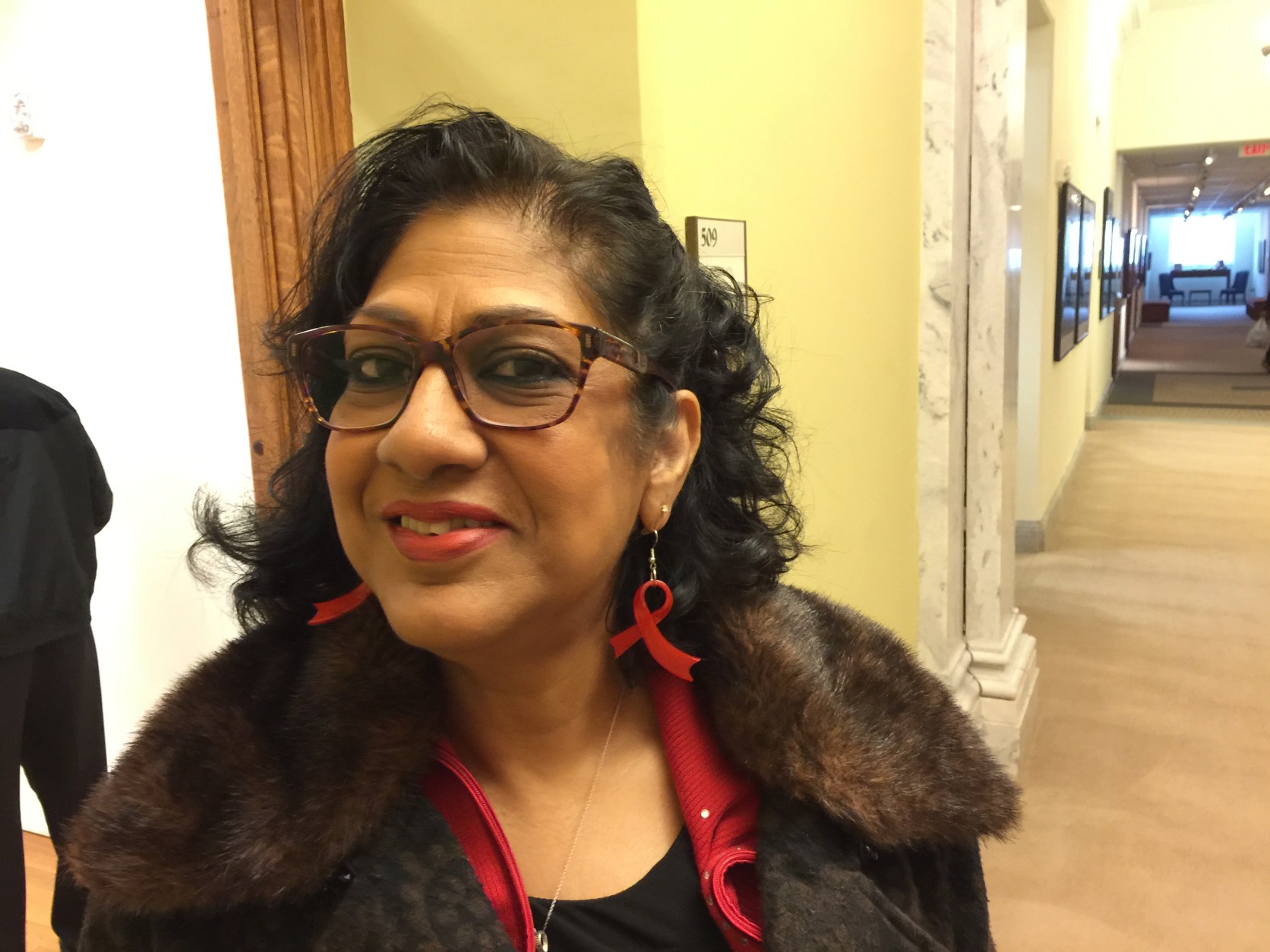
!["In 2013, there were no babies born with HIV [in D.C.] and that's a good thing," Mayor Muriel Bowser said at Tuesday’s signing ceremony. The proclamation Bowser signed says the city has a goal of decreasing new HIV cases by 50 percent by 2020. (WTOP/Kristi King)](https://wtop.com/wp-content/uploads/2015/12/bowser-1672x1254.jpg)
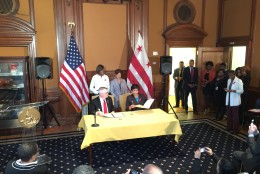
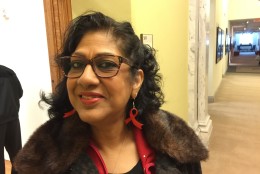
!["In 2013, there were no babies born with HIV [in D.C.] and that's a good thing," Mayor Muriel Bowser said at Tuesday’s signing ceremony. The proclamation Bowser signed says the city has a goal of decreasing new HIV cases by 50 percent by 2020. (WTOP/Kristi King)](https://wtop.com/wp-content/uploads/2015/12/bowser-260x174.jpg)
WASHINGTON — On Tuesday, D.C. and Baltimore recognized “World AIDS Day” by joining a worldwide network of cities committed to ending the disease as a public health threat.
Under the Fast-Track Cities Initiative, cities with high HIV rates pledge to end the disease as a threat by 2030. Over the next five years, the cities will work to achieve their “90-90-90” goals:
- 90 percent of people living with HIV knowing their HIV status
- 90 percent of people living with HIV, who know their HIV-positive status, are on antiretroviral therapy
- 90 percent of people living with HIV, on antiretroviral therapy, achieving viral suppression
Beyond those goals, participating cities will work to exchange best practices. D.C. has helpful strategies to share in that regard.
“In 2013, there were no babies born with HIV [in D.C.] and that’s a good thing,” Mayor Muriel Bowser said at Tuesday’s signing ceremony.
That’s an “incredible accomplishment,” said Jose Zuniga, president of the International Association of Providers of AIDS Care.
The elimination of mother-to-child transmission means the city is “doing the right things in the right places, and absolutely at the right time,” he said. “Now we need to do that with children and adults.”
D.C. has one of the nation’s highest HIV rates. More than 16,400 residents — or 2.5 percent of the population — are living with HIV, the data show.
The proclamation Bowser signed says the city has a goal of decreasing new HIV cases by 50 percent by 2020.


